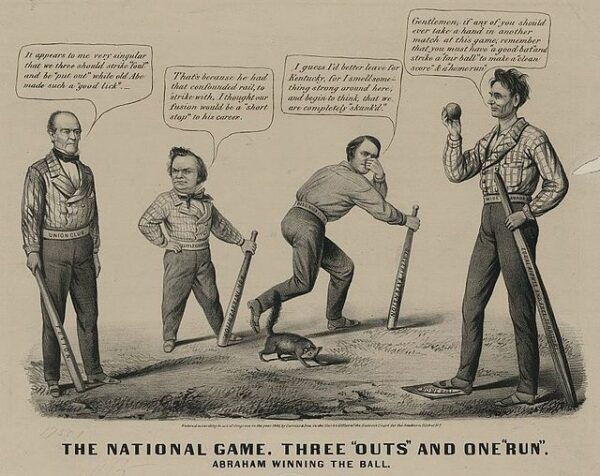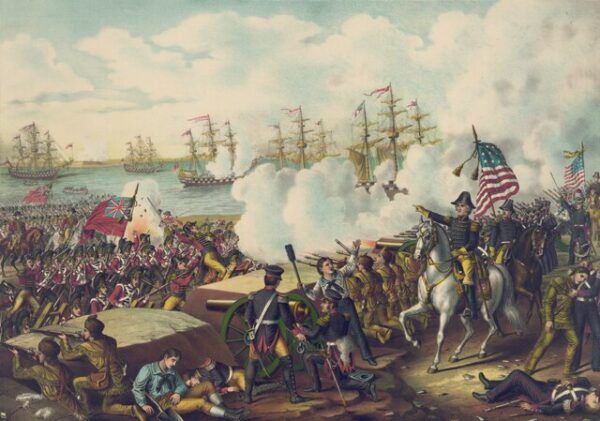Abraham Lincoln’s election on November 6, 1860, signaled more than a partisan win; it signaled a stunning blow against the proslavery movement that had long held power over the United States. In a republic strained by the question of slavery’s expansion—an argument that had devoured parties, churches, and compromises—Lincoln offered a constitutional answer both modest in method and radical in consequence: stop the spread of slavery, secure the dignity of free labor, and preserve the Union under law. The political map that night—New England’s factories and the Midwest’s farms converging—did not merely tally votes; it announced a coalition persuaded that the American experiment must grow on free soil or not at all.
Lincoln’s genius lay in moral clarity without melodrama. He refused the intoxicants of the moment—no promises of instant transformation, no contempt for sections he still meant to govern. He held a narrower, sturdier line: where federal authority reached (territories, national policy), it would cultivate freedom and fence in slavery. To radicals on both sides, this sounded either timid or tyrannical; in practice, it was the only course that married constitutional restraint to moral purpose. It harmonized the North’s material interests—homesteads, internal improvements, a transcontinental railroad—with a governing creed: the laborer should own the bread he earns.
Nor did Lincoln arrive on a wave of accident. The Republican Party built an infrastructure of persuasion—widely read papers, disciplined organizing, the Wide Awakes’ orderly pageantry—that translated moral conviction into turnout. Lincoln, a craftsman of the stump and the printed word, addressed citizens as reasoning adults. He argued from law, history, and common sense, trusting that the public mind—however inflamed—could still be moved by reasons rather than threats. In an age already fluent in insult, he restored the older language of persuasion.
The response from the Deep South—ordinances of secession, a hurried confederacy, the seizure of federal property—exposed not Lincoln’s extremism but the fragility of a politics that demanded veto power over national outcomes. A republic cannot be half-governed by ultimatum. Lincoln’s posture before Fort Sumter—conciliatory letters, appeals to what he called the “better angels,” a near-scrupulous fidelity to process—was not drift; it was discipline. Exhaust the peaceable means first, then act decisively when duty, not temper, requires. When the guns opened on Sumter, he did what a constitutional executive must: defend the Union whose laws had elevated him.
The 1860 verdict also reorganized American politics. The decaying Whig–Democrat alignment of the 1850s—rotted by Kansas–Nebraska, the Dred Scott decision, and the street violence of “Bleeding Kansas”—gave way to a new party system in which Republicans cohered around a free-labor national program and Democrats, increasingly sectional, mistook resistance for strategy. Crucially, Lincoln’s platform anticipated the constructive statecraft of his presidency: homestead legislation to seed broad proprietorship; land-grant universities to lift talent from obscurity; national banking and a modern fiscal architecture to fund the future; and, stitched across the continent, a railroad to bind vast distances into a common market. These were not mere “Northern” bribes; they were investments in mobility consonant with the claim that ordinary citizens, not entrenched castes, would direct the nation’s growth.
From that foundation, the moral arc of the administration becomes legible. Containment of slavery was not the endpoint but the hinge—an assertion that the federal domain belonged to freedom. War clarified the rest. As commander in chief, Lincoln converted that premise into policy—the Emancipation Proclamation as an act of war and a charter of liberty; the Thirteenth Amendment as the constitutional settlement. The chain is unbroken: the ballot of 1860 made the wartime revolution lawful and the postwar amendment durable.
Perhaps Lincoln’s most unfashionable virtue—then and now—was seriousness. He did not flatter the nation with easy promises. He offered work, sacrifice, and the companionship of principle. He would govern not by humiliating a section but by saving a nation, and in saving it, enlarge its liberty. Faced with a crisis that tempted cynicism and force, Americans selected a leader who answered passion with argument, disunion with the principles of the Founding, and despair about the future of our democracy with purpose.






